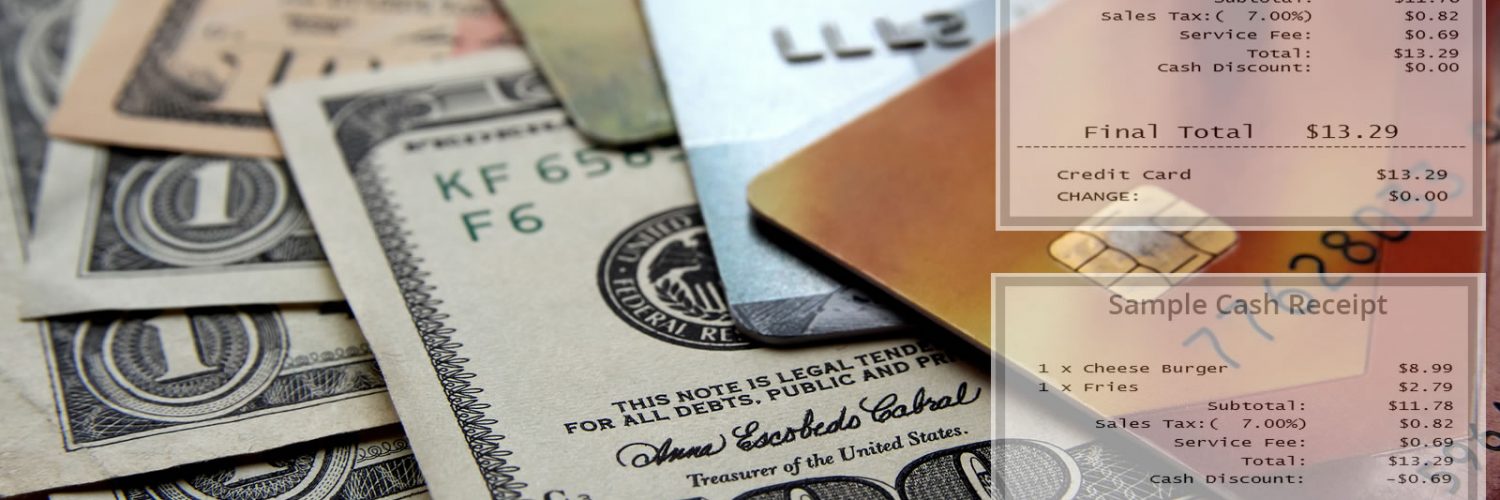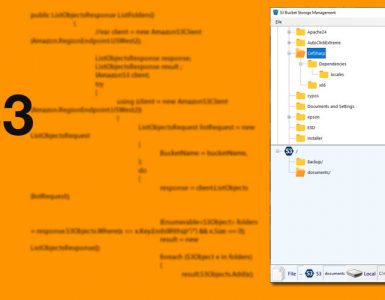Although neither cash discount nor surcharge scheme is new in the payment industry, many merchants are considering them as an option to offset their processing cost in a Post-COVID world.
Let see how these two method work and also find out if the merchants save money by implementing them.
Surcharging
A Surcharge is a set fee that a merchant charges to the customer for using a credit card to pay. Some merchants apply the Surcharge to any ticket amount, and others have a threshold amount (or minimum spend) before they charge this extra fee.
For example, you go to a retail store to shop, and your total is less than $10. The clerk tells you that he must charge you an extra $0.50 convenient fee because your total ticket is less than $10.00!
Generally speaking, imposing a fee on credit card purchases in the form of Surcharge is legal under a lawsuit settlement that went to effect in 2013.
However, there are some restrictions and, as always, some confusion.
For instance, a business can impose a Surcharge equal to what they pay to accept the credit card, but no more than 4%. The minimum spend cannot also be more than $10. The Federal Reserve could raise the minimum spend.
The other murky area is debit card purchases. There is no law regarding debit card minimum purchase and Surcharge. In the case of debit transactions, everything depends on the agreement between the card network and the merchant.
I have not seen any contractual agreement that allows a minimum spend or Surcharge on debit transactions.
Nevertheless, surcharges are not allowed on debit card purchases.
In addition to the card type restriction, merchants must adequately warn the customers about the Surcharge by having a sign at the register.
Surcharge in POS
If you want to use Surcharging in your POS software, you would have two options:
1- To make sure that the payment application that you are using supports surcharging.
For instance, if you are using a Pax device with TSYS, check the Surcharge option of the TSYS app.

You can set up a flat fee or a percentage for the Surcharge amount. There are options available to you (name, confirmation from the customer, and a print option) if you wish to customize the customers’ experience.
Your POS software communicates with the payment device, and as part of the response from the pin pad, you will see a Surcharge amount, which you can then capture in your software for further processes.
2- Write the code to manage the surcharge processing.
The first thing your code must do is distinguish the debit cards from the credit credits.
There are APIs that you could utilize and find out whether a card is, in fact, a credit card, and therefore a surcharge is allowed, or it’s a debit card, and you cannot impose a Surcharge.

However, all BIN APIs have a parameter for the card number, or the first six digits of the card, before they can respond to you.
If you have a Full integration, since you get the full card number, you could use an API to get the card type and deal with Surcharge.
You don’t have access to the full card number in a semi-integrated environment, which will stop you, and thus you cannot call an API to recognize the card type in your code, before the completion of a transaction.
To overcome this issue in your code with semi-integrated characteristics, you could run an AUTH transaction, and once you have the response, you can see the card type as one of the returned fields. If it is a credit card, follow up the AUTH transaction with a CAPTURE, which includes the Surcharge amount.
Cash Discount
Cash Discount (or CD) relative to the Surcharging is a newer scheme. In some strange ways, the CD is a bastardized form of Surcharging.
The following explains how Cash Discount works:
Your pricing reflects the credit card payment prices of your items. The same items have different prices, slightly lower if you pay for them with cash.
A win-win proposition for the merchant and the processor at the expense of the consumers!
The merchant is giving you a “Discount” for paying by “Cash”!
A familiar example of this is when you pay a lower price at the gas pump when you prepay with cash vs. a credit or debit card.

Some businesses got this the wrong way:
The business posted the cash prices, and when the customer paid by credit card, a fee added to the cost of each item!
The first form offers a discount to the customers, and card brands seem to be OK with it.
But the second form (cash prices of the items) seems like a fine for paying by credit cards, and that’s why card brands do not like that at all. You see, this form is Surcharging, regardless of what the name you give it.
In short:
A discount for cash is allowed, but a higher price for credit card payments is not permitted.
You see that the slightest change in how the merchants pass an extra fee to their customers makes a big difference, and the legality of the action becomes questionable!
Cash Discounting has gained popularity in the last couple of years. To have a compliant and correct Cash Discount program, merchants must post signages and inform their customers.
Cash Discount in POS
If you want to implement a Cash Discount feature in your POS software, you must build the necessary functions and processes.
Make sure to this right; give customers a discount for paying by cash, and don’t charge them a fee for paying by credit card.
I have seen the wrong design in the POS systems that have resulted in customers complaining about the extra fee for card payment. Whereas in a correct setting customers see an incentive for cash payment and never complain about receiving a discount.

Payment Processors
Credit card processing companies promote both Cash Discount and Surcharge schemes.
The reason is self-evident if the merchants are going to pass along the processing cost to the customer, then the processing company might as well charge a little higher! A win-win proposition for the merchant and the processor at the expense of the consumers!
Cash Discount is still subject of sometimes heated debates among payment professionals. It is a controversial subject, and merchants must follow the laws of their state when it comes to adopting the program.





